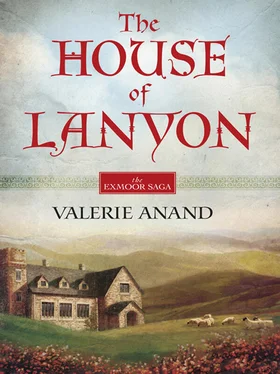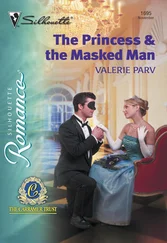“I thought it was the plague that set men free,” said Peter. “So many folk died that villeins were left without masters and no one could stop them going where they liked—and asking wages when they found masters who had no one to work the land and weren’t in any position to argue.”
“The plague and the rising together made the difference, so I’ve heard,” said Richard. He moderated his tone, trying to be patient. “The one made the other stronger. But the rising was about people like us getting bone weary of having people like the Sweetwaters lord it over us. When Adam delved and Eve span, who was then the gentleman? That’s what the rebels used to chant. What makes the Sweetwaters think they’re so wonderful? My father sent me to school, though he could have used my hands on the land by then, because he wanted me to have a chance in life and not speak so broad that no one could understand me that wasn’t born in the west country. Later I sent you, too—and paid through the nose for it!”
“Yes, Father, I know, and I’m grateful, but—”
“No buts, if it’s all the same to you. We can read and write, just about; we can talk proper English and understand the Paternoster in Latin; we can add up our accounts and we know a bit of history. What have the Sweetwaters got that we haven’t? Land and money, that’s all. Well, that’s what I’m after, and seeing my only son hitch himself up with a fisher girl ain’t going to help. Liza Weaver’s another matter. We could gain a lot from that, could start saving. I’m relying on you making a good marriage to give us a leg up in the world. You can just forget Marion!”
“But, Father…” Peter, too, was now trying to be calm and patient. “We’ve said the words that make it a contract.”
“Without witnesses, and her a maiden in her father’s house? Those words were never said, my boy, and that’s that.”
“But they were said, and they’re binding.”
“I see. You’ll challenge me, will you? The young stag’s lowering his antlers at the herd leader, is he?” Richard abandoned patience, rose to his feet, laying aside his own work, and unbuckled his belt. Peter also stood up. He was taller than his father and though not as broad, he had in him the coiled-spring vitality of youth. The two of them faced each other.
“Father Bernard told me to look after you,” said Peter seriously. “So I wouldn’t want to hurt you, but if you try that, I might. I’ll fight. I mean it.”
“My God!” Richard stared at him. The candlelight was shining on Peter’s face. “You’ve had her, haven’t you? There’s nothing turns a boy into a man the way that does. She’s let you…and you still want to marry her?”
Peter was silent, remembering. September, it had been; not the day of the heavy mist, which had been a brief and chilly meeting, but the time before, which was in warm, sunny weather. They had met as usual close to Lynton, the village at the top of the cliff, and wandered into the nearby valley, with its curious rock outcrops. He had left his pony to graze while he and Marion took a goat path up the hillside, through the bracken, untroubled by the flies which in summer would have surrounded them in clouds.
On a patch of grass, hidden from the path below by a convenient rock, they sat down to talk and caress. They had done as much before, but this time it went further. Marion made no protest and soon he was past the point of no return, far adrift on the dreamy seas of desire and at the same time full of energy and the urgent need for pleasure.
The memory of it, of Marion, of her curves and warmth and moistness, her murmurs and little cries of excitement, her arms around him like friendly ropes, the rustle of a stray bracken frond under his left knee, the scent of warm grass and Marion’s hair, which she had surely washed with herbs, and then the splendour of his coming, were beyond putting into words and, in any case, they were not for anyone else to share.
“Yes,” he said now. “I want to marry her. I intend to.”
“We’ll see about that,” said Richard. “I’m going to Lynmouth tomorrow, to find the Lockes. I’ll see what they have to say! And now I’m going to bed and you can damned well finish cleaning the saddlery. And you can tell that priest that I don’t need looking after!”
His father, thought Peter bitterly as Richard stalked out of the room, was turning out as big a bully as George Lanyon had ever been.
The sky the next day was dull but dry and Richard left Allerbrook at dawn, a nosebag for Splash on his shoulder. He rode down the combe, through Clicket and then out over the moor, following the ancient tracks made by the vanished people who had buried their chieftains in hilltop barrows and had raised the strange standing stones one saw here and there amid the heather.
The tracks led across the high moor and brought him at last to the East Lyn River—which his besotted son could not conceivably have mistaken for the Barle, since the high ridge known as the Chains lay between them. He rode downhill beside the tumbling stream, on a steep path through bracken and trees, came to a fork, took the branch that bypassed Lynton village at the top of the cliffs and went on down to its sister village, Lynmouth, at the foot.
Here there was a harbour, with a quay and a square stone building with a smoking vent, where herring were dried. The tide was in and so were a couple of big ships and a fleet of small boats, which were being unloaded. Both men and women were bringing netting and baskets of fish onto the quay, and buyers were already clustering around them. Close by stood the thick-walled thatched cottages of the fisherfolk.
He looked for a roof decorated with birds made of twisted straw, and found it at once. It was one of the larger cottages, which suggested that the Locke family was comparatively prosperous. But still nowhere near as well-off as he was, he thought grimly. This was not the place to find a new mistress for Allerbrook farm, even if the girl Peter had in mind was respectable, which he doubted.
There was a hitching post beside the cottage. He secured Splash, loosened the girth and ran up the stirrups, gave the horse his nosebag and went purposefully to knock at the door of the cottage. It was ajar and opened when he rapped, but he paused politely, waiting for someone to come. The door opened straight into a living room and kitchen combined; he could see a trivet and pot, set over a fire, and a woman stirring the pot. Another woman was standing over a whitewood table close to a window, no doubt for the sake of the light, and gutting fish with a ferocious-looking knife. A third, broom in hand, was now advancing to ask him his business. He knew at once that this was Marion.
Peter had said she was beautiful, but it was the wrong word. Inside his head Richard struggled to find the right one and found himself thinking luscious, like the pears and plums which grew beside the southernmost wall of Sweetwater House. It was sheltered there, with good soil, and the fruit was always so full of juice that it seemed about to burst through the skin.
Village boys were employed as bird scarers and when the fruit was ready to harvest, they were paid with a basketful each. Richard himself, as a lad, had sometimes helped to frighten off the starlings, and been paid with pears and plums, the taste of which he had never forgotten.
This girl called them to mind. Her working gown was a dull brown garment, but within it, her shape was so rich and full that he had hard work not to stare rudely. He saw, too, that her hair, which was not concealed by any cap or coif, was extraordinary. It wasn’t so much curly as wiry and it was an astonishing pale gold in colour. She had pulled it back and knotted it behind her head, but much of it was too short for that and stood out around her head in a primrose cloud. It was clean hair, too. She looked after it.
Читать дальше












